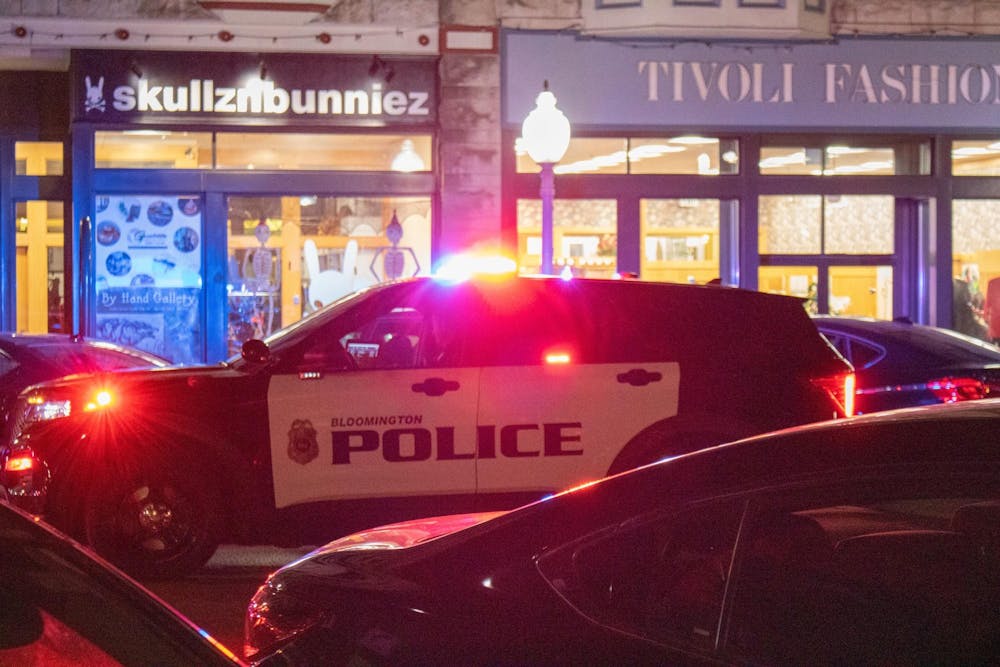A bill extending Indiana’s lifeline law was signed into law by Gov. Mike Braun on Thursday.
The original lifeline law guarantees that any person requesting medical help for another due to alcohol-related emergencies will not be prosecuted for possessing, consuming or transporting alcohol as a minor, or for public intoxication as long as they stay on the scene and remain compliant with police.
However, the original law does not protect the person in need of medical assistance from prosecution. A group of Purdue University students knew that could prevent students from requesting help.
“We had a lot of situations on our campus where our students were hesitant to make the call in underage drinking medical emergencies,” Rebecca Siener, vice president of the Purdue Student Government and Students for Lifeline Law, said.
Students for Lifeline Law is an organization working through the Purdue Student Government to attain medical amnesty for underage drinkers in emergencies. Its coalition includes students from Purdue, Indiana University, and Indiana State University. Siener said they worked with former Indiana Sen. Jim Merritt, who authored the original bill in 2012, to try to pass the legislation.
“We spent the past year and a half lobbying members of the General Assembly, traveling back and forth from the State House,” Siener said. “We assisted in the writing of Senate Bill 74.”
Senate Bill 74 grants immunity to underage drinkers suffering from alcohol-related health emergencies who have called for medical assistance or had medical assistance called for them from criminal prosecution for certain crimes.
The law shields the minor as long as the person provides their full name and the relevant information requested by the police officer, remains at the scene and cooperates with law enforcement.
“It’s obviously a move in the right direction,” Meagan Barnhart, the interim director of Substance Use Intervention Services at IU, said. “As far as taking a harm reduction approach and, you know, focusing on protecting the students and making them feel like they can contact 911 if they need to.”
Substance Use Intervention Services offers a sober space for students who are seeking recovery from substances. They host prevention programming, educational presentations and have an intervention team with licensed counselors. Barnhart said that over 7,000 students were served from fall 2023 to spring 2024.
Barnhart said she thinks the university’s lifeline law policy, which mirrors state law will be adjusted according to the change this summer to reflect the update.
“Any updates that are made to the lifeline law, of course, will be in our programming,” Barnhart said. “We do a lot of presentations on overdose prevention and awareness, like how to handle an overdose, and we talked about the lifeline law as part of that programming.”
According to the 2023 Indiana College Substance Use Survey, 55.7% of respondents and 44.7% of respondents under 21 reported drinking alcohol in the past month. 29.6% reported binge drinking, having over four drinks at a time for women and over five for men, in the past two weeks.
Over a quarter of the survey respondents that said they consumed alcohol in the past year reported they blacked out, and 11.1% said they had been hurt or injured due to alcohol consumption.
“A lot of people think that, you know, the lifeline law encourages or incentivizes underage drinking,” Siener said. “When that’s just simply not true.”
She cited a 3.87% decrease in underage alcohol use in Indiana from 2008 to 2018. The lifeline law was first passed in 2012.
Siener said though she thought the policy would encourage people to call for help by eliminating the legal repercussions, education is an important step to drive change.
“If you don’t know that all people are protected, then the policy serves no purpose,” she said. “We hope to continue to work with the coalition to make sure that we’re educating all of our respective student populations on the current lifeline law.”
Siener said she hopes the coalition will continue to be involved at the State House, mentioning that Merritt had ideas of how students could stay involved in the legislature.
“It was very inspiring to know that students could affect legislative change,” she said.






